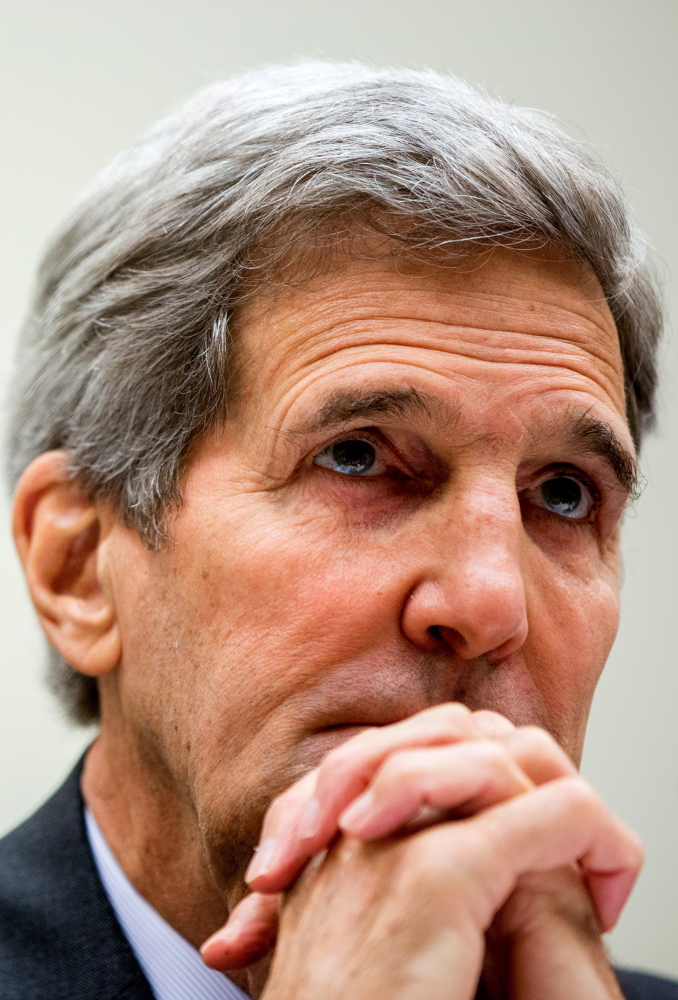CAIRO — Despite persistent human rights concerns, the United States on Sunday resumed formal security talks with Egypt that were last held six years ago and kept on hiatus until now amid political unrest that swept the country in the wake of the Arab Spring.
Two days after the U.S. delivered eight F-16 warplanes to Egypt as part of a military support package that the White House is boosting to help Egypt counter an increasing terrorist threat, Secretary of State John Kerry restarted the so-called “strategic dialogue” that was last held in 2009 and did not occur in subsequent years due to the Arab Spring and turmoil after the ouster of Egypt’s authoritarian leader Hosni Mubarak in 2011.
Kerry said the administration is committed to working with Egypt to enhance its military capabilities as it confronts growing threats from extremists. That aid had been on hold until earlier this year due to human rights and democracy concerns in the wake of the military overthrow of Islamist President Mohammed Morsi in 2013.
Before meeting with Egyptian President Abdel-Fattah el-Sissi, Kerry told Foreign Minister Sameh Shoukry the U.S. would “continue to provide robust training to the Egyptian military, as the military seeks it and desires it, in an effort to build capacity, and also to meet the highest expectations of your military for its professionalism.” He noted that in addition to the F-16s, the U.S. had provided Egypt with Apache helicopters, attack boats, armored vehicles and other weapons systems this year. More aid is on the way, he said.
At the same time, he said Washington would continue to press Cairo on the arrests of dissidents and journalists and mass trials.
“Obviously, there has been a little bit of tension over certain issues,” he said at a joint news conference with Shoukry that was held shortly after a court in Cairo again postponed a verdict in the trial of three Al-Jazeera English journalists.
Shoukry said no journalists have been detained for doing their jobs, only for terrorism and other offenses, and he rejected criticism that detainees were being denied due process.
Kerry made the case, though, that peaceful dissent must be allowed if Egypt is to successfully combat extremism.
Send questions/comments to the editors.



Success. Please wait for the page to reload. If the page does not reload within 5 seconds, please refresh the page.
Enter your email and password to access comments.
Hi, to comment on stories you must . This profile is in addition to your subscription and website login.
Already have a commenting profile? .
Invalid username/password.
Please check your email to confirm and complete your registration.
Only subscribers are eligible to post comments. Please subscribe or login first for digital access. Here’s why.
Use the form below to reset your password. When you've submitted your account email, we will send an email with a reset code.